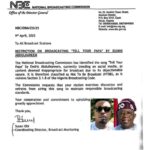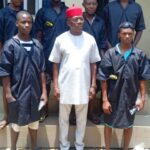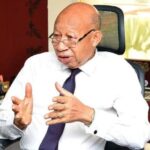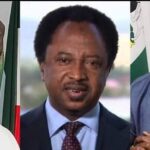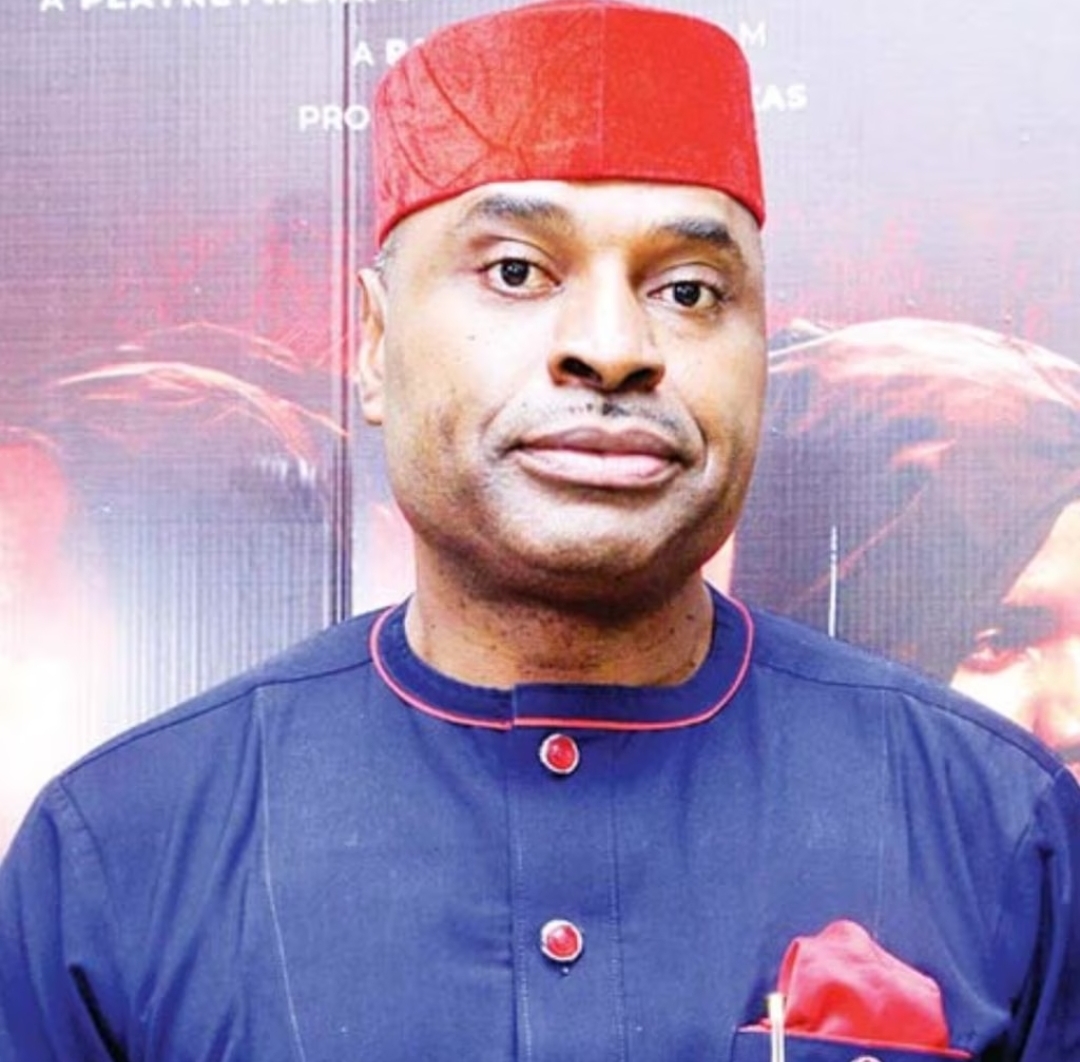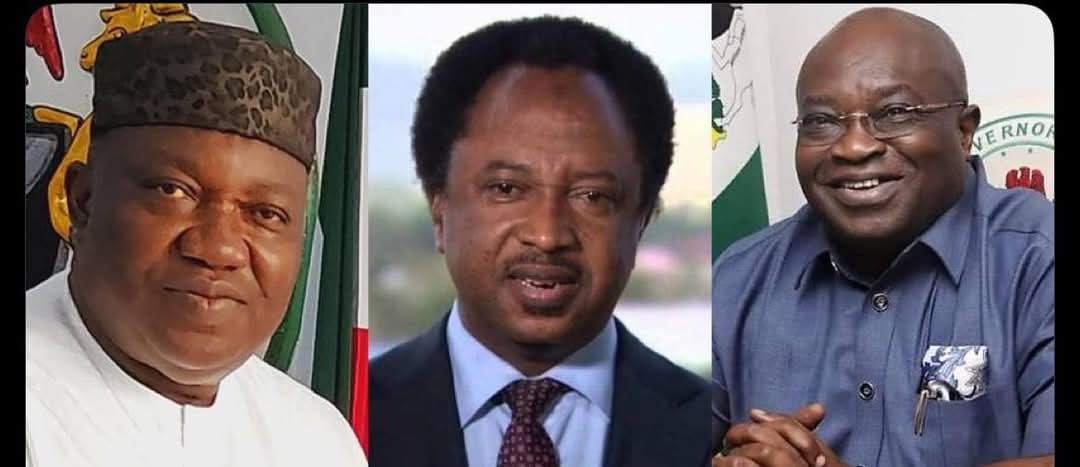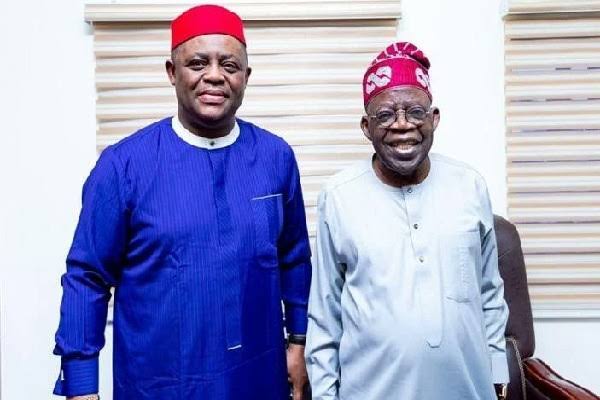The Sunday Back Page Column 19th February 2023 “Global Square” with Dr. Kenneth Okonkwo.
February 25, 2023 is the date for the presidential election in Nigeria. The Nigerian president is regarded as one of the most powerful presidents on earth because of the enormous powers invested on him by the Constitution.
This may not be surprising because our Constitution proceeded from the military who infused their unitary system of governance and their command structure on our Constitution to deliver to the country the most powerful president in Africa. A whopping 68 items are contained in the Exclusive List of Part 1 of the Second Schedule of the 1999 Constitution as amended. The president has exclusive right and power over all the 68 items to the exclusion of the state governors and the local government chairmen. This includes all the items in the Concurrent List in the Constitution of which power he shares with the lower tiers of government to the extent that he has the superior power over them. In the pursuit of all these, he enjoys immunity against any redress from any citizen with regards to the consequences of any of his decisions. The president can practically do and undo in Nigeria without serious consequence to him, subject only to the supreme authority of the Almighty God over mankind and a rare flicker of guts from a predominantly docile Federal Legislature.
This is why Nigerians must be careful about whom they vote as president of Nigeria come 2023. President Buhari must also be careful as to whom he hands over power come May 29, 2023. When he set out to contest in 2015, he articulated three-point agenda which included security, anti-corruption and improvement of the economy. Nigerians had high hopes in his ability to deliver going by his track record and antecedent as military Head of State. As a military Head of State he had zero tolerance for corruption and insecurity. As a military General, he led the operation that destroyed some invading terrorists from Chad in days. He sentenced some politicians and governors who were found to have corruptly enriched themselves and their parties to a term of 200 years in jail or more. He lined up three Nigerian youths found guilty of drug trafficking and shot them to death.
When he decided to run for the post of president, on the agenda of anti-corruption, security and economy, many Nigerians believed him. By 2015, after the fourth attempt, he won.
Unfortunately, he could not achieve any of his set goals. The economy has become so bad that in the twilight of his regime, Nigerians, for the first time in history, are buying naira with naira. He will bequeath N77 trillion worth of debt to the next generation. Oil subsidy he once called fraudulent is now most paid out by his regime. More than 54 per cent of the youths are unemployed, while more than 133 million Nigerians are suffering from multi-dimensional poverty. Nigeria is the least competitive economy in Africa with very low Total Factor Productivity and Export Competitiveness Index. Insecurity is so high that farmers cannot go to their farms anymore. Terrorists, bandits and kidnappers have their way in all the six geo-political zones of Nigeria with horrendous level of massacres and ransom taking. More than 20 million children are out of school with the majority of them coming from the North. More crude oil is stolen than exported. Government officials steal with ease. Inter-agency rivalry is rife and suffocating leading to poor implementation of policies and plans of government which consequently lead to poor outcomes and results.
Taking the issue of Naira redesign as a case study. When the CBN Governor informed the country that the bank will redesign the Naira, the Minister of Finance publicly disclosed that she didn’t have a clue such an action was imminent. The DSS declared Godwin Emefiele, CBN governor, wanted for allegedly sponsoring terrorism. He had to go to court to secure the protection of his fundamental human right. A grace period of three months was initially granted for the currency swap, yet the new currency was no where to be found. The deadline has been shifted twice, with great confusion foisted on the economy. The governors of APC sued the Federal Government of APC to the Supreme Court over the matter and some APC governors are even issuing out contradictory orders to the orders of the president. The Supreme Court is delivering unenforceable interim orders on the matter to complete the circle of confusion. No need rehearsing that the Inspector-General of Police and the Police Service Commission have been at loggerheads as to whom has the right to recruit, promote and discipline the members of the police force with its adverse effect on the security of the country. They have resorted to the courts to settle their differences with the president maintaining a deafening silence. All in all, it appears as if there’s no effective government in place.
The only legacy the president can leave for Nigeria now is a free, fair and credible election and ensure that he hands over to a president that will assist in achieving his original objectives of security, anti-corruption and improvement of the economy.
In considering the suitability of each candidate to the achievement of these objectives, it is important to look at their track records and vision. Two of the three top contenders have occupied executive positions while one has occupied a vice presidential position with no executive powers vested on him. The Constitution is very clear that the executive powers of the Federal and State governments are vested in the president and governors.
Peter Obi and Ahmed Tinubu were governors with executive powers while Atiku Abubakar was a vice president without executive powers. This is why Atiku has the constitutional right to contest any executive position in Nigeria, but Obi and Tinubu are barred by law not to contest the gubernatorial seats in Nigeria forever.
Unfortunately, the only boss Atiku ever had, President Olusegun Obasanjo has this to say about Atiku in his book, My Watch. “What I did not know, which came out glaringly later, was his parental background which was somehow shadowy. His propensity to corruption. His tendency to disloyalty. His inability to say and stick to the truth all the time. A propensity for poor judgment. His belief and reliance on marabouts. His lack of transparency. His trust in money to buy his way out on all issues and his readiness to sacrifice morality, integrity, propriety, truth and national interest for self and selfish interest”. Who is that employer that will contemplate hiring an employee whose last employer gave such recommendation. The answer is none. With the revelation by the former media aide of Atiku, Michael Achimugu, on his corrupt tendencies, Obasanjo’s allegations against Atiku on corruption may have been effectively corroborated. Thus, it will be hypocritical for President Buhari who sent corrupt politicians to hundreds of years in jail, to turn back and contemplate handing over power to a corrupt politician. Buhari is an ethnic Fulani Northern Muslim just like Atiku Abubakar. Handing over power to Atiku, his kinsman, will offend the concept of power shift and rotation between North and South and among the six geo-political zones which our Constitution and the laws of the parties preach. See Sections 14(3)(4), 15(1)(2)(3d)(4) of the Constitution of Nigeria, Preamble 2(d) and Section 7(3)(c) of PDP Constitution. This may lead to instability after the election and threaten the peace of the country.
Both Atiku and Tinubu are septuagenerians (above 70 years). At that age, physical body mechanism and metabolism have started slowing down, leading to low energy. In Tinubu’s own case, age related sicknesses have even affected his mental capacity to govern.
According to Najaatu Mohammed, his former Campaign Director, Tinubu is senile and mentally deranged and had no manifesto for Nigeria and the North.
President Ibrahim Babangida made it clear that Nigeria requires a younger citizen to help it overcome its myriad of problems. Seeing the challenges Nigeria is facing today, as listed above, we agree with IBB that the time to look for a younger person to lead Nigeria is now.
Peter Obi is the symbol of a third force whom Nigerians have been yearning for. He is younger than the other two candidates and has no identifiable trace of corruption following him.
He caused a major upset in the political equation of Anambra State by winning the gubernatorial election in the state through a minority party, APGA, which before then had no structure, political candidates or appointees in that state. He transformed the state from a state where thugs kidnap state governors and assasinate eminent citizens and where schools are shut down for years, to a modern state with security, good education, health care, good roads and efficient infrastructure. His good governance entrenched APGA so much in the hearts of Anambrarians that they became sentimentally attached to APGA till date. His opponents point out that he doesn’t have structure to win the election, but they are constantly proved wrong by the myriads of opinion polls which constantly place him ahead of others. He has always countered that the people of Nigeria are his structure. He has been endorsed by former president, present governors of other political parties, social cultural groups of the Southwest, Southeast, South-south, Middle Belt and some Islamic Clerics from the North. It is left for Nigerians to actualize the dream of a new Nigeria through the ballot on 25th February by choosing unity of the country, competence, character and capacity of candidates over primordial sentiments.
May God grant everyone safe journey as we go to vote.

